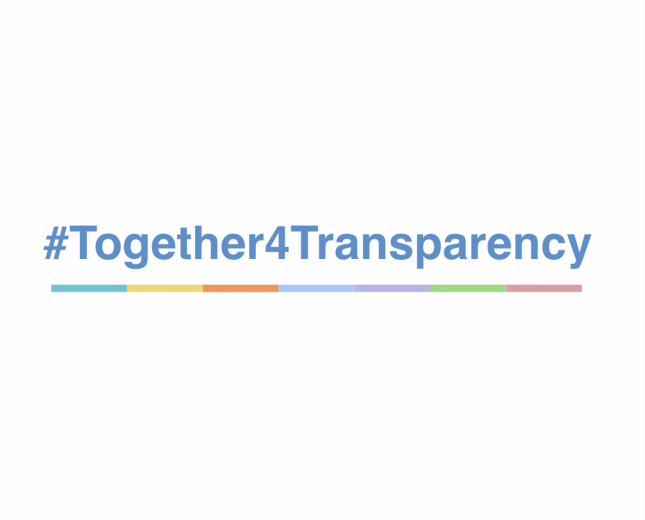Background:
Financial, technical and capacity-building support are important for developing country Parties for preparation of their national reports under the Convention and the Paris Agreement. As of 6 October, 80 countries applied for GEF’s Biennial Transparency Report (BTR) funding. Of these 80, 27 countries requested funding for BTR 1 and BTR 2 in one application, which may also include support for National Communication (NC). As of June 2023, around half of the remaining developing countries have applications in progress, while around 30+ countries have not yet started BTR support application process. GEF is working with its implementing agencies, for example, FAO, UNDP, UNEP and UNIDO, to streamline and simplify modalities and enhance coordination on project coverage, and this is GEF’s current priority in 2023.
In the meantime, developing country Parties shared during different occasions, such as SBI negotiation sessions and transparency surveys, that they faced challenges in accessing GEF funding and support in a timely manner, as well as in implementing GEF projects sustainably.
To address these issues, GEF has streamlined the application process by revising the funding application templates and allowing for the bundling of multiple reports, i.e. two BTRs and one NC (as applicable), within one application:
-
Since the start of GEF-8, GEF has revised all the funding application templates, particularly the Enabling Activity templates. The new template is now more concise, comprising three pages with 4-5 sections, and approximately 2,000 words. When fully completed, the documents span 5-6 pages.
-
GEF now offers the option to bundle multiple reports within a single application. Given that the GEF cycle is four years, resources for up to two BTRs and one NC within this timeframe can be approved under the same project. This bundled approach has garnered increasing interest for reduced transaction cost on the project preparation, and recent submissions have been employing it.
-
GEF continues to work with the GEF implementing agencies to ensure that all Parties that have not yet submitted a request for funding for their first BTR do so at the earliest possible time, noting that funds are available and that both the agencies and GEF are ready to provide any clarification or answer any preliminary question on the process to access the funds.
GEF remains proactive in exploring further improvements. As of June 2023, about 30% of approved BTR projects received the first disbursement. To expedite the process, collaboration between recipient countries and agencies is essential. Understanding the programming requirements of the GEF and GEF Implementing Agencies and necessary timelines for preparation of the funding requests as well as for starting project implementation is key for timely access to funds and sustainability of national reporting. At SB 58, GEF held meetings with implementing agencies to strategize on engaging countries more effectively. Furthermore, the GEF has worked to further increase efficiency in the provision of support using multi-country programs, including the Umbrella Program, which was approved in June 2022. This Umbrella Program includes funding for up to 54 BTRs.
Objectives:
Jointly organized by the UNFCCC secretariat and UNDP, this event aims to:
-
Raise awareness of GEF’s simplified funding processes for the Enhanced Transparency Framework (ETF) of the Paris Agreement.
-
Provide a platform for discussions between countries, GEF and GEF implementing agencies on the application of GEF funding and implementation of GEF projects.
Resource persons: GEF, GEF implementing agencies, recipient countries and UNFCCC secretariat.
Target audience: GEF focal points, national transparency experts and other relevant stakeholders.
Agenda:
| Time |
Description |
| Moderator – Jigme, UNFCCC secretariat |
| 5 min |
Welcome remarks
|
| 15 – 20 min |
Session 1 – Updates from GEF and GEF implementing agencies
A joint presentation from GEF and GEF implementing agencies, which will showcase the simplified funding processes for ETF, the overall picture of BTRs and NCs support status and implementing agencies’ support to developing countries.
Presenters:
|
| 50 - 55 min |
Session 2 - Panel discussion
The panel discussion aims to provide a platform for GEF, GEF implementing agencies and recipient countries to discuss and share best practices, lessons learned and challenges in relation to accessing funds for the meeting reporting obligations under the Convention and the Paris Agreement.
Potential questions for consideration:
-
To country representatives: Could you please share best practices, lessons learned and challenges when working with GEF and GEF implementing agencies on transparency-related funding applications and projects?
-
To GEF implementing agencies: Could you please share best practices, lessons learned and challenges when working with recipient countries?
-
To GEF: what are your suggestions for GEF implementing agencies and recipient countries to work together in an efficient manner?
-
To all panelists: What actions and measures can the GEF, GEF implementing agencies and developing countries implement regarding procedures, capacity building and governance to further improve funding application and project implementation process?
Panelists:
-
Mr. Filippo Berardi, GEF
-
Ms. Eva Huttova, UNDP
-
Ms. Suzanne Lekoyiet, UNEP
-
Mr. Ajay Raghava, India
-
Mr. Yamikani Idriss, Malawi
-
Ms. Sandra Boitumelo Motshwanedi, South Africa
|
| 10 min |
Q & A session
If no questions asked from the floor, the moderator may consider asking:
|
| 5 min |
Closing remarks by the moderator |
